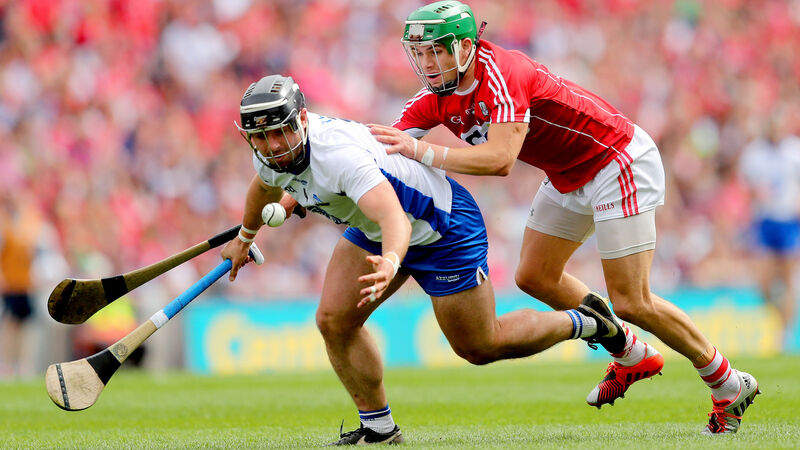Kieran Shannon: Heroes without medals who bring the Project on are All-Ireland winners too

Try from €1.50 / week
SUBSCRIBE
Waterford would not have made it to the last game of this season if they couldn’t draw on the reservoir of confidence that came from contesting the final game of the 2017 season, a campaign in which Noel Connors won the third of his All-Stars. Picture: INPHO/James Crombie
They won’t be in the same seat as Tony Óg Regan was, given that no one except possibly family members will be able to watch this year’s All-Ireland finals from the stands, but there’s a prospect that a few recently-retired Waterford and Mayo players will feel as if they’re in the same shoes.
In a passage from Damian Lawlor’s fascinating When The World Stops Watching: Life After the Game that also ran in these pages last week, the former Galway hurler recounted the anguish he experienced being in the lower Hogan Stand at half-time of the 2015 All- Ireland when his old comrades were well on top of Kilkenny and seemed likely to finish the county’s long wait without Liam MacCarthy.
Already a subscriber? Sign in
You have reached your article limit.
Annual €130 €80
Best value
Monthly €12€6 / month
Introductory offers for new customers. Annual billed once for first year. Renews at €130. Monthly initial discount (first 3 months) billed monthly, then €12 a month. Ts&Cs apply.
Newsletter
Latest news from the world of sport, along with the best in opinion from our outstanding team of sports writers. and reporters
Newsletter
Latest news from the world of sport, along with the best in opinion from our outstanding team of sports writers. and reporters
Thursday, February 12, 2026 - 11:00 AM
Thursday, February 12, 2026 - 7:00 AM
Thursday, February 12, 2026 - 7:00 AM
© Examiner Echo Group Limited